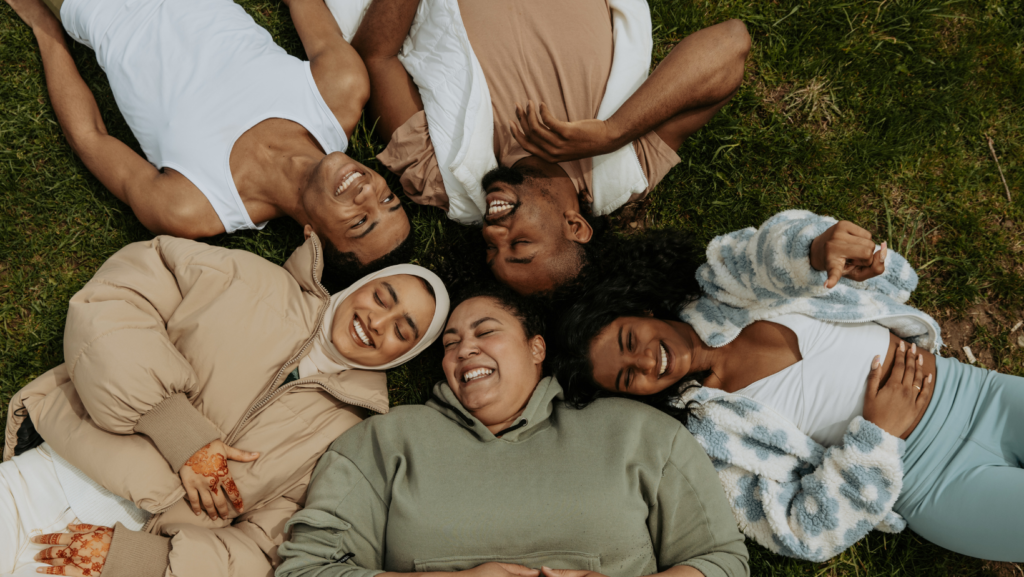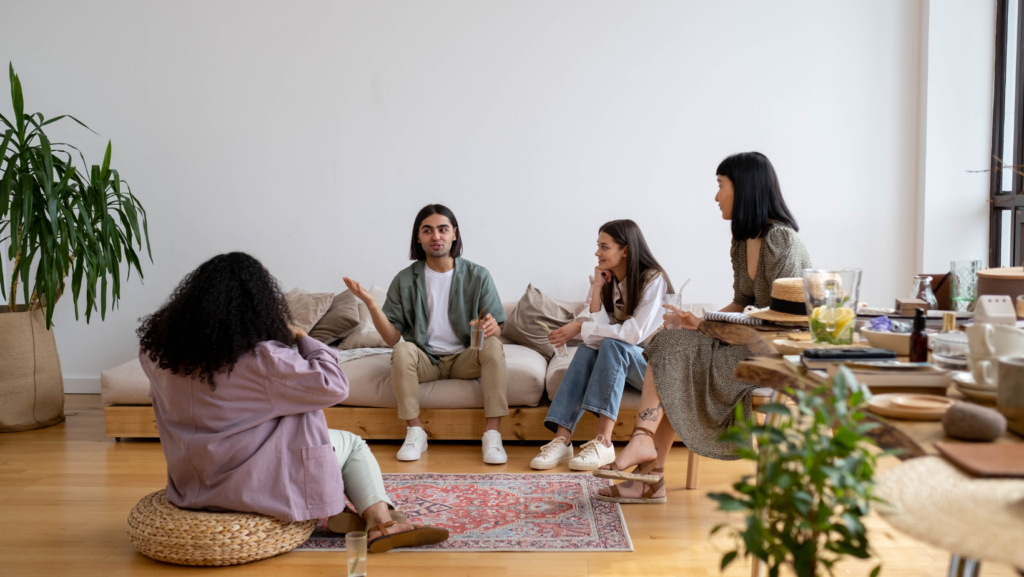Breaking barriers and connecting with others can be a tough job task, especially when we encounter people who come from different backgrounds– cultures, religions, and beliefs; and are different from our personalities. However, we need to know ways to overcome this challenging task and connect more to the people around us.
In this article, we explore different ways to overcome differences and connect with others. Through these ways, we can create a united and harmonious world where differences are inevitable but are celebrated and appreciated. So let’s start exploring these ways.
7 Strategies for Overcoming Differences
1. By educating ourselves.
One of the effective strategies for breaking down barriers like stereotypes and prejudices according to Michael Samuel, CEO of CEOMichaelHR. By educating not just ourselves but also others about different cultures and backgrounds, we can have the ability to challenge presumptions and prejudices.

Therefore, it very essential to be educated about the importance of recognizing diversity to avoid or lessen misunderstanding and negative stereotypes.
How can we achieve this?
- Through workshops and/or training sessions done at school or any other related facility.
- Attending cultural events that introduce other cultures and promote open communication.
Indeed, educating ourselves should be a given considering that we are already aware that nowadays we are living in a more diverse community.
2. Question your presumptions.
In this strategy, we are already in the part of challenging stereotypes and biases. This strategy was suggested by a clinical psychologist at Practicalpie, Dr. Alyssa. “Start by considering your own prejudices and presumptions regarding various racial and ethnic groups. Although it could be uncomfortable, this is essential if you want to develop and evolve. Be as interested and open-minded as you can, and look for facts that contradict your assumptions,” she says.
Questioning our presumptions is important in overcoming differences because it helps us to challenge our existing ideas and biases about other people when it comes to beliefs, religion, race, and culture. And through this, we gain a better understanding of diversity that critically involves understanding rather than making baseless assumptions.
How can we question our presumptions?
- Recognize your assumptions. Identify your presumptions about different cultures, religions, and beliefs.
- Do research. Research the sources and reflect on where your assumptions came from.
- Analyze your assumptions. Ask yourself if your own assumption is based on facts by thinking critically.
- Look up other perspectives. Talk to people from diverse backgrounds, ask for their experiences, and understand them.
- Be open-minded. Approach people with an open mind and with curiosity rather than being bound by your own biases.
Overall, questioning your presumptions is an important step toward building meaningful connections and breaking down barriers between individuals and groups.
3. Promote diversity and inclusivity.

This strategy was suggested by Fred Hoffman, Founder of True Wilderness. According to him, “It is important to promote diversity and inclusivity in our communities by creating welcoming environments for everyone. This can be done through mentorship programs, cultural celebrations, and open dialogue. Additionally, organizations should strive to create equitable policies and practices that will ensure everyone is respected and included.”
Promoting diversity and inclusivity creates an environment where people from different backgrounds can freely share their ideas and thoughts about something without feeling scared about what other people might feel and say.
Furthermore, it sends a powerful message about the value of diversity and the sense of respect for everyone in the community.
4. Putting yourself in someone else’s shoes.
According to the Owner of French Investments Ronald French, one strategy that most people or businesses can use to help with stereotypes is to put themselves in the person’s shoes that you are stereotyping. “Ask yourself if you want to have someone make an assumption about you, just because you did not dress, speak, or look the way that a person felt you should,” he says.
Through this strategy, we allow ourselves to see things from different perspectives. Because of this, we will be able to approach people with empathy, and from this, we can establish meaningful connections, even with people who are very different from us.
Moreover, putting yourself in someone else’s shoes can help you to build trust and respect with others.
5. Be an active listener.

“Listen to others with an open mind and a willingness to learn,” says Simon Bacher, CEO of Ling App. It is very important to always be ready to listen attentively to not forget how they said it as well.
When we listen actively, we also let the person speaking know their value, thoughts, and opinion. As a result, a safe space for freedom of expression is established.
Overall, allows us to better understand the other person’s perspective and feelings. It can help to create a more inclusive and harmonious environment where people feel heard, valued, and respected.
6. Make time for meaningful connections.
Michael Dadashi, CEO of Infinite Recovery says, “Interacting with people who are different than you is often an uncomfortable experience, but it’s also a great way to learn about someone else’s experiences and build meaningful relationships.
We should communicate and treat people the way we want to be treated. It is not easy to do this, which is why it requires time and effort— make time for it. In this way, establishing meaningful connections is guaranteed.
7. Learn and experience.

Ray Lauzums, Owner of Poogers says, “Learning about other cultures and lifestyles, as well as experiencing different viewpoints, can help to break down stereotypes and prejudices. This can be accomplished through education on inclusion and diversity, reading various narratives, or visiting activities that bring individuals from many backgrounds together.”
There are many ways to learn and experience different cultures, beliefs, and ways of life like traveling and attending cultural events. Nevertheless, it is also very important that we acknowledge ourselves to not judge and be biased instead of being open-minded towards other cultures.
Opportunities and challenges

Promoting these methods is easier said than done because to continually do this we need to be consistent and dedicated at all times. These are the possible opportunities and difficulties:
- Possibility: This enhances creativity and innovation. When people from different backgrounds and experiences are brought together, we can create ways and different types of strategies that can be used in our lives and great invention would be possible.
Challenge: Some people who benefit from the way things are maybe afraid of efforts to support diversity and acceptance. It’s important to talk about these concerns and show how having more diversity can be good for everyone.
- Possibility: There will improvements in our judgments. Decisions can be made that are more inclusive and well-rounded when multiple viewpoints are considered. Better results and improved buy-in from all stakeholders may result from this.
Challenge: It is insufficient to merely check a box by employing or promoting individuals from different backgrounds. Making an environment where everyone feels appreciated, supported, and their contributions are acknowledged and rewarded is necessary for true inclusion.
- Possibility: When individuals feel valued and included in their communities, they are more likely to participate and collaborate towards common goals. As a result, society can become stronger and more interconnected, better able to face challenges and adapt to changes.
Challenge: The difficulty of unconscious bias Unconscious biases can affect how well-intentioned individuals interact with others. It’s crucial to be conscious of these prejudices and take action to combat them, such as through education and training.
In conclusion, overcoming differences and building connections with others is essential for creating a more inclusive and harmonious society. With the ways discussed, we can break down barriers and build connections with people from diverse backgrounds. Ultimately, when we work towards understanding and accepting each other, we can create a more resilient, united, and harmonious society where everyone feels valued and respected.



